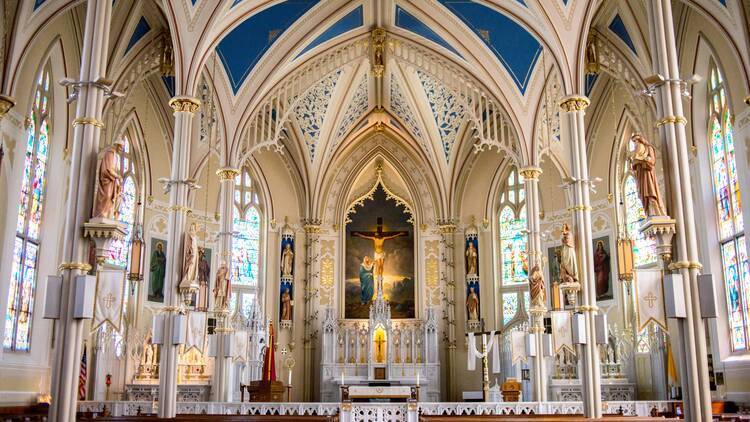A Reflection for the Memorial of St. Thomas Aquinas, Priest and Doctor of the Church
Looking around at those seated in the circle he said,
“Here are my mother and my brothers.
For whoever does the will of God
is my brother and sister and mother.”
You can find today's readings here.
Today’s first reading draws a contrast between the “burnt offerings” and “sin offerings” of the Hebrew Bible and the offering of “the Body of Jesus Christ once and for all,” saying it is only the latter that takes away our sins. It points to Jesus’ words, which echo the prophets’: “Behold, I come to do your will.” Those words then resound in the Gospel, when Jesus looks at those seated in a circle around him and says, “Whoever does the will of God is my brother and sister and mother.”
I’m particularly struck by this image of a circle of people seated around Jesus, interrupted by those standing outside the house yelling to him, “Your mother and your brothers and your sisters are outside asking for you.” Read in tandem with the first reading, on God’s acceptance of Jesus’ body as a sacrifice for our sins, I can’t help but think of the many intimate Masses I’ve been part of that felt just like that: Sitting in a circle, maybe on the floor like the disciples, offering the body of Christ together, each according to our own vocation.
It makes me think, too, of this article by the Jesuit playwright Bill Cain, on five Masses that marked his life as a Jesuit, through the tumultuous liturgical transitions following Vatican II. I ended up at his Jesuit residence for yet another intimate Mass and dinner just after the story was published, and got to hear him reflect on these experiences in person—and some that he left out.
This is the part where I could reflect on some of my own most transformative Mass experiences, and there have been many—shedding some of my own liturgical traditionalism at a living room Mass with some nuns; gaining some of it back at both experimental liturgies and Latin Masses in New York; praying the Beatitudes at the Sea of Galilee; or, at the end of last year’s synod, sitting with a handful of America colleagues in the room where St. Ignatius died, sharing our reflections on the spiritual movements we’d experienced at that historic moment in the church. But there is too much to say. I’d invite you instead to reflect on your own most personally significant liturgical experiences, to think of how they may have changed you, and to realize that somehow, along with our meager efforts to “come to do Your will,” these offerings are enough for God. As Father Cain’s piece concludes: “Miracles abound.”








